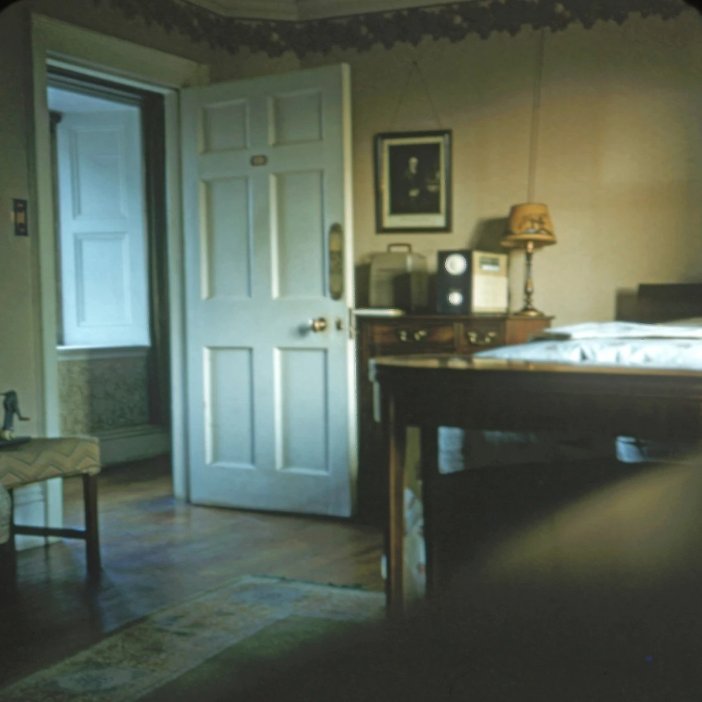Whenever I commit to doing one of these countdowns on here, there are always a couple of albums which sneak in at the last moment. Several will be too late even for my shape-shifting list this year, but will get a special mention soon. However, ‘Mirry’ was sent to me in November by one of the team behind the independent record shop vinyl initiative Dinked, Rupert Morrison. He was, understandably, very excited about a title they were preparing to announce and which actually only came out on Friday. A full release will follow in February of 2021, but this early edition comes with alternative artwork and is on smoke-effect clear vinyl. As you can imagine, that last detail was hardly the one to clinch the deal.
What had me hooked was the music and the story of its creation. It is built upon the recordings of Mirabel Lomer, who was born at the turn of the twentieth century and spent much of her adult life as a carer, firstly to her elderly parents and then another couple in Wiltshire. Having grown up in a strict household where she was forbidden from playing music, she had secretly composed a selection of pieces for piano and they were captured on cassette by her brother. Thirty years ago, Lomer having passed during the preceding decade, musician Tom Fraser made a discovery during the house clearance that followed his grandfather’s death that would form the basis of this album. A scratched and battered Transco master disc had been tossed aside but Fraser tucked it in a box and put it to one side.
The time afforded by lockdown meant the disc was discovered once more and Fraser’s Great Aunt Mirry’s archived but unknown work was suddenly alive again. Using it as the basis for these pieces, he has collaborated with Simon Tong to produce some startling, lyrical and vivid soundscapes. Fans of Gavin Bryars and Virginia Astley should drop everything and get hold of a copy right now.
Perhaps most striking is the sense of decay. Notes drifting into the inky blackness, crackle from the abandoned disc, fragments of broken sound as generations are spanned in the studio. ‘Study In F’ is especially textured, at times evoking the burbling atmospherics of Nils Frahm’s stunning ‘Spaces’ set. Distorted beats play off against reverb-drenched, sparingly-sampled piano notes in one of the most modern sounding pieces here.
By contrast, album opener ‘Anthem’ begins with a section of the original recording all bathed in its contemporary hiss before a percussive scaffold emerges to elevate it in a suitably stately manner. One of the great achievements here is using the found sounds and inherent noise of the recording as such coherent textures. This isn’t like those moments when a producer who’s phoning it in opts for a bit of vinyl crackle at the start of a track in a misguided quest for authenticity. The noise is Mirry’s life, the moments when that disc got played and those performances were decoded as an analogue signal that reflected her own creativity back at her. It’s as central to the pieces as the birdsong on Astley’s absolute classic ‘From Gardens Where We Feel Secure’.
These pieces are quite remarkably coherent considering the distance in time, experience and instincts at play. ‘Consolation’ somehow sounds like a celebration of a life in under four minutes. Stately organ swells offer a sense of sombre service while playful claps position a lightness of spirit at the heart of proceedings. The creative urge kept so hidden by someone committed to the support of others is here honoured and evolved by musicians keen to bestow some care on the carer. I won’t spoil the end of ‘Anthem Reprise’ for you, but brace yourself.
Closer ‘Nicholas and Alexandra’ is a shimmering finale, an ascension of melody and deftness of touch that leaves these melodies as living things released from long-forgotten grooves. I’ve a feeling I’ll wish I had put this higher up the list when it reaches its conclusion, but even at this early stage of my relationship with ‘Mirry’ it’s clear that it is one to treasure.

